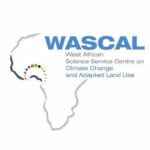NetCDA
Network for capacity development in climatechange adaptation
About NetCDA
The European Academic Network for Capacity Development in Climate Change Adaptation (NetCDA) is a collaborative initiative supporting doctoral students in climate research, particularly within the WASCAL framework. Hochschule Neubrandenburg, as a partner, contributes to mentoring PhD candidates and fostering research exchange between Africa and Europe.
Coordinated by Julius-Maximilians-University Würzburg (JMU), NetCDA unites nine German institutions to strengthen academic networks, provide research opportunities, and enhance climate adaptation strategies. Funded by Germany’s Federal Ministry of Education and Research (BMBF), the project plays a key role in developing future climate experts.
Our Mission, Vision and Objectives
Mission:
To strengthen the research and capacity of West African countries in addressing climate change and variability through science-based solutions, data dissemination, and sustainable land management.
Vision:
A climate-resilient West Africa with empowered communities and institutions that adapt to and mitigate the adverse effects of climate change while promoting sustainable development.
Objectives:
- Build and strengthen scientific capacity and infrastructure in West Africa to address climate change impacts.
- Foster cooperation between African and German research institutions for knowledge sharing and joint innovation.
- Provide climate and environmental data to governments, researchers, and communities to enable effective decision-making.
- Develop and implement sustainable land-use strategies that support food security, water management, and ecosystem conservation.
- Empower local communities through climate-smart agriculture, renewable energy initiatives, and adaptation strategies.
Research Programs
WASCAL’s research focuses on several key areas that are essential to addressing climate and land-use challenges:
- Climate Modeling and Data Collection: Developing advanced climate models to predict regional climate trends and extreme weather events.
- Land Use and Agriculture: Promoting sustainable agricultural practices that can adapt to changing environmental conditions while protecting natural ecosystems.
- Water Resources Management: Studying hydrological systems and developing sustainable water use practices to ensure access to clean water in the region.
Renewable Energy: Exploring the potential for renewable energy sources to enhance energy security and reduce carbon footprints across West Africa.
Each of these programs involves collaboration between West African universities, German research institutions, and local communities to ensure that solutions are practical and grounded in local knowledge.
Capacity Building and Education
WASCAL is committed to building the next generation of climate scientists and researchers in West Africa. Our educational initiatives include:
Graduate Schools: We operate several regional graduate programs that offer Master's and PhD degrees focused on climate change, land use, water resources, and related fields. These programs aim to equip students with the skills to tackle real-world climate challenges.
Workshops and Training: Regular workshops and training sessions are held for professionals, government officials, and researchers, helping them stay up to date on climate science and land management practices.
Through these initiatives, WASCAL is developing a network of skilled professionals who can lead climate adaptation and mitigation efforts in their own countries.
Partner Countries and Collaborations
WASCAL operates through partnerships between the following West African countries and Germany:
Partner Countries: Benin, Burkina Faso, Côte d'Ivoire, Ghana, Mali, Niger, Nigeria, Senegal, Togo, and others.
Institutional Partners: Universities, research centers, and government agencies across West Africa and Germany collaborate on WASCAL’s research and educational programs.
WASCAL also partners with regional and international organizations, such as the African Union, ECOWAS, and global climate and development agencies, to ensure a comprehensive approach to addressing climate challenges.
Impact and Success Stories
WASCAL has made a significant impact on climate resilience in West Africa. Some of our notable achievements include:
Improved Climate Data: Through our regional climate monitoring network, we have provided policymakers with high-quality data to support better planning and response to climate variability.
Sustainable Agricultural Practices: By promoting climate-smart agriculture, we have helped farmers increase crop yields, reduce environmental impacts, and adapt to changing weather patterns.
Capacity Building: Over 500 graduates from our programs are now working in governments, NGOs, and research institutions across the region, driving forward climate adaptation and sustainable development initiatives.
Renewable Energy Projects: WASCAL has supported the implementation of several renewable energy projects that provide clean power to local communities, reducing reliance on fossil fuels.
Get Involved with WASCAL
There are several ways to get involved with WASCAL's mission:
Researchers and Students: Join one of our graduate programs or contribute to our ongoing research projects
Partnerships: Collaborate with us as a governmental or non-governmental organization, university, or private sector partner.
Donate: Support our work by contributing to our research and education initiatives.


